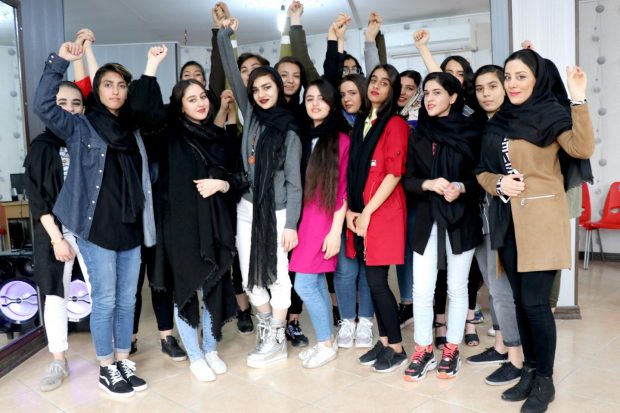
Iran and Afghanistan: So far, so close

By Alireza Bahrami
TEHRAN: The relationship between Iran and Afghanistan has historically been a series of contradictions and similarities. During the Persian Empire, in the distant years, Afghanistan and Tajikistan were also part of Greater Persia. In modern political geography, Iran, Afghanistan, and Tajikistan are the three countries where the majority of people speak Persian.
The changing history of Iran and Afghanistan, especially Afghanistan, has made the relationship between the two countries a set of friendships and discrepancies. However, the ties of the two nations have sometimes corresponded to the diplomatic relations of the statesmen and sometimes it has been something different.
This difference seems to have become more pronounced in the last few months. The Islamic Republic of Iran has long opposed the Taliban as fundamentalist Muslims. The Iranian government has opposed the extremist policies of these fundamentalists for the past two decades. Iran even at times allied with Western powers in the fight against the Taliban, but after the withdrawal of US troops from Afghanistan, ordered by President Biden, and the re-emergence of the Taliban after years, the Iranian government pursued a policy of silence.
This behavior, which seemed to be in agreement with Western countries, was seen as a kind of confirmation of the rise of the fundamentalists in Afghanistan.
This confirmation, however, has never been formally expressed. The Taliban also claim and have shown so far that they have not made changes in managing and treating the people compared to the previous period.
But the Iranian people had different behavior from the government in this matter. The main popular reaction in Iran was open and serious opposition to the Taliban. Iranians, especially the educated and elite, in addition to taking a stand, also blamed the rulers of different countries for the Afghanistan situation. Iranians were concerned about the status of freedom and the fate of women in their neighboring country.
This popular approach in Iran has made many Afghans, especially the educated, who have a more prominent presence in cyberspace, very grateful to the Iranian people. Even Afghans living in Western countries praised the behavior of the Iranian people.
There were also long queues in Afghanistan to travel to Iran. Some of them made it to the eastern borders of Iran with difficulty. More Afghans are seen on the streets of Iran’s major cities in recent weeks. In Tehran, the capital of Iran, long lines of Afghans have formed in front of the embassies of Western countries.
Afghans have had a large presence in Iran over the years as cheap labor. In recent months, they have been treated more kindly by Iranians. Afghans were also more grateful to the Iranian people.
At the end of 2019, half of the asylum seekers were from Afghanistan, Pakistan and about a third (950,000) of Iran. This number has surged in recent months.
According to some estimates, more than two million Afghans have jobs in Iran, and in this way they are estimated to take out between three and four billion euros in a year.
Under the new circumstances, the United Nations warned that many Afghans were moving towards Iran and Pakistan. The United Nations has warned of this high volume of migration.
The European Union (EU) has said it does not recognize the Taliban government in Afghanistan but will continue to work with it to prevent economic and social collapse. The United States and Russia have also taken a stand against the Taliban and Afghanistan based on their interests. The Afghan Refugee Agency also said in a statement, Please note that the UN High Commissioner for Refugees in Iran has no registration, does not decide whether to be a refugee or issue a document – the Iranian government is responsible in this regard.
Please note that the UNHCR does not currently have a resettlement plan in Iran.
Please note that the UNHCR does not refer Afghan nationals to plans recently announced by some countries to relocate or evacuate them. If you are given information in this regard, it is incorrect. All information and requests in this regard should be made through contact with the relevant countries and their procedures.
Iranians, in these few months, had a very clear position towards the Taliban, which seems to be unchangeable.
The Taliban government has banned women from attending school and university and has forbidden many recreational activities for the Afghan people. It has banned the presence of many TV presenters and whipped some journalists. They have also erased a lot of urban advertising and banned female employees from attending government offices. All this is unpleasant and unforgivable in the eyes of the Iranian people, especially the educated.
This position of the Iranian people has made them more receptive to the presence of the Afghan people, despite the economic and social issues that follow.
The common language of the people of the two countries has strengthened this welcome. The Persian language is a factor in the strong understanding that has led many of today’s Afghan poets to grow in Iran over the past few decades and approach the poetic language of Iran. Iran has also been a base for Afghan elites over the past few decades who have migrated to countries such as Canada, the United Kingdom, Sweden and Australia after several years in Iran. Iran has been a major bridge between the people of Afghanistan and the world; Afghanistan has no maritime borders and therefore relies on a transit route to connect with the world.


